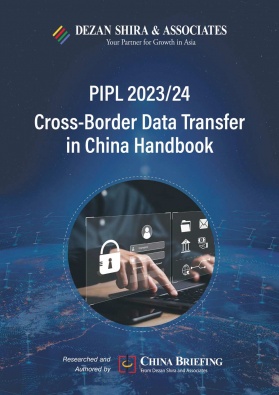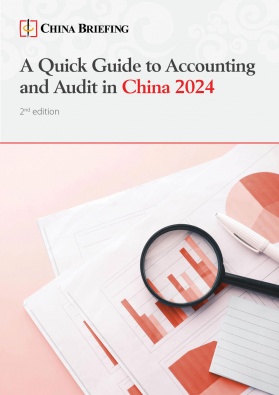Shanghai’s Lingang New Area to Trial Measures to Facilitate Cross-Border Data Transfer
The Lingang New Area in the Shanghai Free Trade Zone will trial measures to facilitate cross-border data flows for companies based in the area. Under the trial, data will be categorized into “general”, “important”, and “core”, with companies in the area allowed to freely export “general” data out of China. It is hoped that the trial will improve the ease of doing business in the area and set an example for other free trade zones in the country to adopt.
The Lingang New Area of the Shanghai Free Trade Zone (FTZ) in Pudong will trial a series of measures to facilitate cross-border data transfer (CBDT) for companies operating in the area.
At the International Data Economy Industry Innovation Conference held in Shanghai on January 19, the government showcased a set of trial measures for the “classified and hierarchical” management of CBDT in the Lingang New Area. The measures, which have not yet been released to the public, divide data for cross-border transfer into three different risk categories: core, important, and general data.
In addition, the government will release two data catalogs: a “general data” catalog, which will include types of data that can be transferred freely out of the Lingang New Area, and an “important data” catalog, which will be subject to restrictions. The first data catalogs are expected to be released in March 2024.
The new trial follows several efforts by the Chinese government to facilitate the export of personal information (PI) and improve the overall business environment for foreign companies and the private sector. China’s strict rules on the export and protection of PI and other forms of data have caused considerable disruption to both domestic and foreign companies that rely on the free flow of data for basic operations.
In August 2023, a set of measures for optimizing the foreign investment environment released by the State Council called for establishing “green channels” for qualified foreign companies to export data, and to pilot a list of “general data” that can be transferred freely across the border in Beijing, Tianjin, and Shanghai.
The following month, the Cybersecurity Administration of China (CAC) released draft regulations that provide allowances for the export of “important data” and PI in certain scenarios.
The system that will be put in place in the Lingang New Area is the first concrete trial of some of the proposed measures to facilitate the cross-border flow of data.
How will the trial work?
Under the trial system, data classified as “general” in the Lingang New Area can be freely exported as long as certain management requirements are met. According to China Business News, officials at the conference explained that the general data list will target the most urgent scenarios for companies’ CBDT needs.
Meanwhile, “important data” must be submitted to the Cyberspace Affairs Office of the Municipal Party Committee for a data export security assessment after a preliminary inspection of the Lingang New Area Data Cross-Border Service Center.
Finally, “core data” is entirely prohibited from being exported.
The Lingang New Area will formulate a general data and important data list that companies can refer to when assessing which procedures must be taken to export certain data.
The general data catalog will be gradually expanded over time, with the first catalogs to be released in March.
In 2024, the catalogs will focus on specific priority sectors that are important to the economy in the Lingang New Area. These are intelligent connected vehicles, financial management, high-end shipping, international trade, biomedicine, and cultural overseas expansion.
Working groups for each industry sector are being established to formulate the data lists and catalogs. These working groups will consist of experts, leading companies, and related government institutions in each industry sector. According to China Business News, auto companies including Tesla, Shanghai Automobile Group, and Porsche are involved in the working group for intelligent connected vehicles, while Mitsui Sumitomo Insurance is involved in the financial management group.
In formulating the lists for each sector, the working groups will also initially focus on certain areas of the industry:
- For intelligent connected vehicles, the focus will be on product research and development, operation and maintenance, and business management;
- For financial management, the focus will be on information disclosure compliance, market research information sharing, and internal management data; and
- For biomedicine, the focus will be on clinical trials, pharmacovigilance, and medical inquiry.
At the conference, the Director of the Data Department of the Lingang New Area Management Committee Lu Sen explained that a grey area between “general” and “important” data would inevitably exist, and for this reason, the lists will be continuously expanded and adjusted based on new research, as well as the overall development of the various industries and companies within the Lingang New Area. Moreover, data that is not included in the general data list does not necessarily constitute important data.
However, the management measures reportedly do clarify that if an important data list is issued in a relevant field, the general data list in that field will automatically become invalid.
Impact of the trial on companies in the Lingang New Area
Before the data lists are released in March, it will be difficult to ascertain how impactful this trial will be for companies, as it will depend on the scope of data included in the “general data” list. The participation of stakeholder companies in the formulation of the lists should mean that the concerns and needs of companies will be taken into serious consideration, and the lists will be based on the actual situation of companies operating in the area.
The Lingang New Area trial will almost certainly be followed by more such trials in different FTZs across the country, adapted to focus on the industries that are the most important for the respective economies
In addition, while the Lingang New Area trial focuses on certain sectors for the time being, it will likely be expanded to include more sectors in the future, and possibly expanded to other parts of the Shanghai FTZ.
We will continue to monitor the development of the trial in the Lingang New Area and provide updates when the data lists and management measures are released.
About Us
China Briefing is written and produced by Dezan Shira & Associates. The practice assists foreign investors into China and has done so since 1992 through offices in Beijing, Tianjin, Dalian, Qingdao, Shanghai, Hangzhou, Ningbo, Suzhou, Guangzhou, Dongguan, Zhongshan, Shenzhen, and Hong Kong. Please contact the firm for assistance in China at china@dezshira.com.
Dezan Shira & Associates has offices in Vietnam, Indonesia, Singapore, United States, Germany, Italy, India, and Dubai (UAE). We also have partner firms assisting foreign investors in The Philippines, Malaysia, Thailand, and Bangladesh.
- Previous Article Eingetragenes Kapital in China: Ein umfassender Leitfaden für ausländische Unternehmen [Update 2024]
- Next Article What to Know Before Quitting Your Job in China – Guide for Foreign Employees









